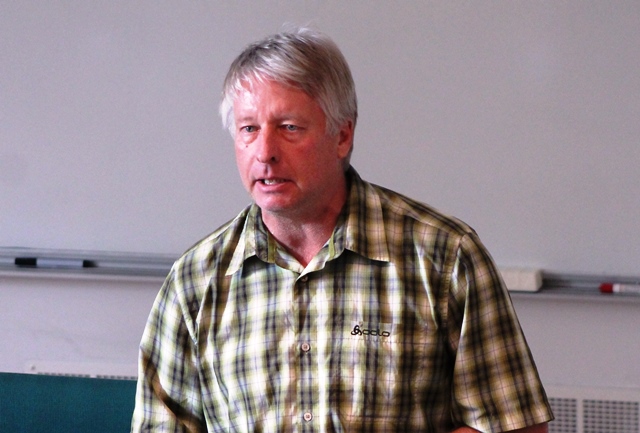Professor Dr. Gerold Rahmann´s scientific focus has been on low input farming system development. At the moment professor Rahmann is president of the board of the International Society of Organic Agriculture Research (ISOFAR).
Organic 3.0, the next phase of organic development, is about bringing organic into the mainstream with the task of participating in solving the global challenges. These challenges, such as supplying enough healthy food, protecting the environment and changing the consuming habits have been discussed among the organic sector. The ongoing discussions, however, do not have enough practical visions for research.
- What has to be done that organic sector is ready to contribute to tackle the future challenges, Rahmann asks.
Rahmann sees that there are two time dimensions in this work. Firstly, the next 35 years until 2050, when there will be approximately 9 billion people and 1 ha agricultural farm land per capita. Secondly, the time from 2050 up to 2100, with estimated 11 billion people and only 0,7 ha agricultural land per capita.
- The challenges are the same for every farming system. Our limited resources need to be intensified, more productive and efficient, Rahmann states.
Hence, the food production must be more and more sustainable in general. All farming systems can learn from each other in this job. Both organic and conventional systems have to train and trigger their farming systems on the track of better practices.
The future questions, some of the highly vast, some of them highly detailed, must be solved together with the support of research.
- Organic sector can take the leadership for future innovations to design clear pathways to be more sustainable, Rahmann suggests.
The article is based on the keynote speech given by professor, Dr. Gerold Rahmann at the international organic conference in Mikkeli, 21st of June, 2017. The conference gathered over 90 researchers from 13 countries to discuss the current research topics in organic farming sector.
- More information: www.njf.nu/seminars/mikkeli2017
- The conference material will be published in Organic ePrints: www.orgprints.org
